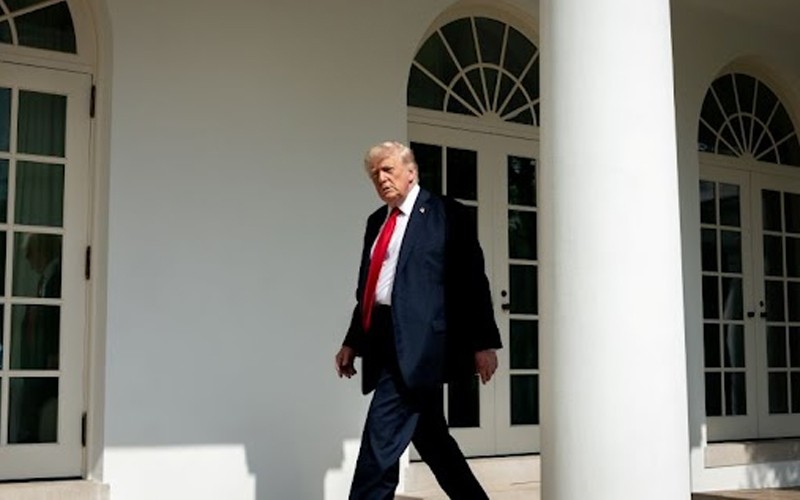Just Earth News | @justearthnews | 23 Sep 2025, 12:41 pm Print

Donald Trump at the White House. Photo: X/The White House.
The United States has proposed significant amendments to the H-1B visa regulations, just days after President Donald Trump signed a proclamation imposing new restrictions on the programme.
The Department of Homeland Security (DHS) has put forward a plan to eliminate the current lottery system used to allocate H-1B visas.
Instead, it would introduce a weighted selection process that prioritises higher-skilled and higher-paid foreign workers, while still allowing companies to hire employees at all wage levels.
The move comes after Trump’s recent proclamation, which announced a $100,000 fee for each new H-1B application.
The visa, widely used by US companies to hire skilled workers in sectors such as technology and engineering, has long been allocated through a random lottery due to overwhelming demand.
White House spokeswoman Taylor Rogers defended the proposed change, saying: “President Trump promised to put American workers first, and this common-sense action does just that by discouraging companies from spamming the system and driving down wages."
"It also gives certainty to American businesses who actually want to bring high-skilled workers to our great country but have been trampled on by abuses of the system,” Rogers said.
While signing the proclamation, Trump reiterated his stance: “The incentive is to hire American workers.”
According to data from the US Citizenship and Immigration Services (USCIS), Indians account for 71% of all approved H-1B applications, making them the most affected group by the proposed changes.
If approved, the new rules could dramatically reshape the H-1B programme, shifting it from a lottery-based system to a merit- and wage-based allocation model.
The move, if implemented, could impact the Indians working in the US, as they make up 71 per cent of all the approved H-1B applications, according to data by the US Citizenship and Immigration Services.
- Abandoned at birth, Punch the macaque finds global love as crowds flock to Tokyo zoo
- YouTube Premium Lite just got a massive boost — Know all details
- Trump claims he stopped 35 million deaths by stopping India-Pakistan war
- Entrepreneur decides to shut down 16-year old eatery in London, cites harassment and Pakistani attacks
- Ubisoft bets big on Assassin’s Creed with strategic leadership revamp





-1763561110.jpg)
